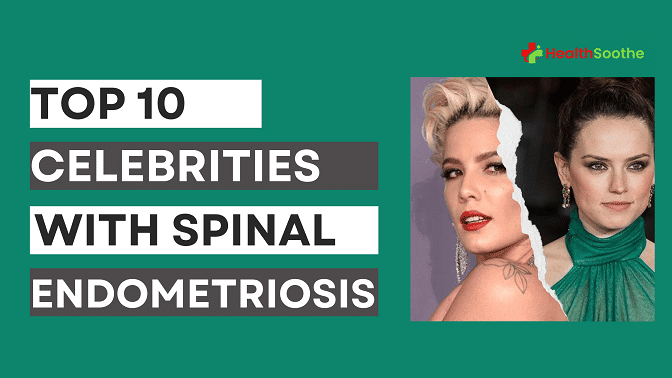Although there isn't a recognized expert in endometriosis yet, few gynaecologists have the knowledge and experience necessary to identify or treat endometriosis, so you probably need to look for one.
Read Also: How To Use Ginger To Unblock Fallopian Tube
If You May Have Endometriosis, Do Your Research to Find Proper Care
Get yourself to a doctor as soon as you suspect endometriosis is the cause of your problems. Years of undiagnosed illness, misdiagnosis, or subpar care are not necessary.
1. Look for "centres for endometriosis care" online.
These are facilities that have a focus on the disease, are aware of the symptoms, and are skilled in its management. Despite the fact that Dr Seckin was out of network, Latia Lee discovered him via her own research and was successful in getting her insurance to cover him. If there isn't a specialist within 50 miles of your house, many insurance companies will pay for out-of-network specialists as if they were in-network.)
2. Prepare for your journey.
For instance, Claudia Wright, 28, decided it was worthwhile to go from Perth, Australia, to the Center of Endometriosis Care (CEC) in Atlanta to have the necessary treatment. "My ray of hope came in the form of Dr Ken Sinervo. I was unable to continue living the way I was and was unable to receive the attention I required at home. I knew he could assist me from the moment I met him and the diverse team he works with," she adds. (If you do need to travel, the centre will typically assist with making reservations and finding cheap hotels.)
3. Look into Facebook groups, endo bloggers, and regional and national support organizations for endometriosis.
By participating in support groups and conversing with other female patients, Wright claims to have discovered the CEC. She now has a personal Instagram account, @me myself and endometriosis, where she shares guidance and suggestions for selecting the best therapy.
Questions to Ask Your Endometriosis Specialist and Yourself
The Endometriosis Foundation of America advises you to ask the following questions if you have located a doctor you believe to be "the one." Many of these institutes will conduct exploratory work over the phone for no charge if you live far away.
Does your doctor...
- Focus on endometriosis treatment?
- Relate your past and symptoms, does anyone pay attention to you? Respond to your inquiries in a cooperative manner and respect your opinions?
- Give a thorough, clear explanation of potential treatment regimens?
- The appropriate inquiries? If the symptoms worsen around menstruation, he or she should be concerned.
- Work with a group of experts? A chest surgeon, urologist, general surgeon, colorectal surgeon, and Dr Seckin, an endometriosis expert and surgeon, were all required to be present during Lee's surgery due to the complexity of her particular condition.
What If You Can’t Get a Specialist Immediately?
It's possible that the doctors won't be able to see you straight immediately or that the appointment will need to wait until you can go to their location.
What do you do to look after yourself in the interim?
"Wherever you can, get the greatest care possible. It's excellent if doing so entails collaborating with your neighbourhood primary care doctor, a local gynaecologist, and other specialists like a physical therapist, urologist, or gastroenterologist. According to Heather Guidone, the surgical program director of the Center for Endometriosis Treatment (CEC) in Atlanta, "if it means coordinating care with your local ob-gyn who has compassion and does all they can to help you manage symptoms, that's amazing."
Dr. Liu advises discussing these additional treatment options with your neighbourhood doctor:
- NSAIDs and other painkillers should be taken as prescribed. For some people, visiting a pain specialist may be a wise choice.
- Hormonal treatments like birth control pills, patches, and vaginal rings that contain both estrogen and progesterone, progestin-only contraceptives like 1Depo-Provera (medroxyprogesterone), which are available as pills, IUDs, and shots, and GnRH treatments like Orilissa (elagolix), and Lupron (leuprolide), may also lessen pain.
- Supplements, pelvic floor physical therapy, acupuncture, stress management, diet, and other complementary and alternative therapies can all aid with symptom relief.
How is endometriosis found by doctors?
Laparoscopy. The only reliable way to diagnose endometriosis is through laparoscopy. Your doctor can inspect the interior of your abdomen during this quick surgery and obtain tissue samples. These samples can be examined to confirm the diagnosis of endometriosis.
How long does it typically take to make an endometriosis diagnosis?
American women with endometriosis typically experience the condition for 10 years before a correct diagnosis is made. One in ten women have endometriosis, and it is frequently discovered in those women who have chronic pelvic pain.
What may be mistaken for endometriosis?
Endometriosis is commonly mistaken for other medical disorders, such as 2pelvic inflammatory disease (PID)or ovarian cysts, that can also cause pelvic pain. It could be mistaken for irritable bowel syndrome (IBS), which also produces stomach cramping, constipation, and episodes of diarrhoea.
Can an ultrasound detect endometriosis?
Can an ultrasound detect endometriosis? Large tissue aggregates that are most likely indicators of endometriosis can be seen during ultrasounds. In addition, ultrasounds are excellent in spotting ovarian endometriosis. However, ultrasounds are unable to detect minute tissue fragments that could constitute endometriosis symptoms.
Does endometriosis cause skin problems?
Hormonal acne, including blackheads, whiteheads, and uncomfortable cysts, can result from endometriosis. Due to the inflammation that patients with endo experience within their bodies, for some people, it might make their skin more sensitive.
Can endometriosis cause breast problems?
Endometriosis is frequently linked to fibrocystic breasts, which can result in sore, painful, and delicate breasts. The underlying breast tissue may feel rough or ropey and may change in texture as a result of hormonal changes.
Conclusion
The use of medication is a temporary solution. These treatments don't address the underlying cause of the condition; rather, they manage its symptoms and suffering. Endometriosis can only be treated by removing the affected tissue. According to Liu, using these medical management techniques can frequently buy time until one can begin receiving therapy from an endometriosis specialist.
Additional resources and citations
- 1Depo-Provera
- 2pelvic inflammatory disease (PID)



